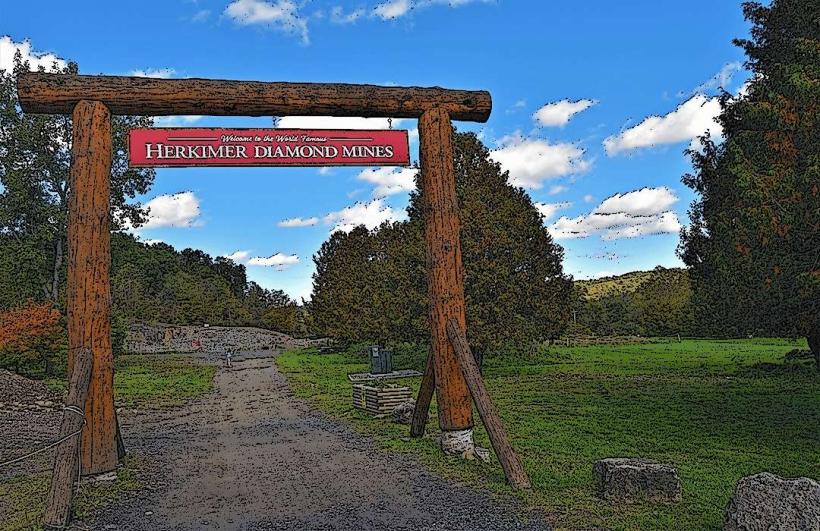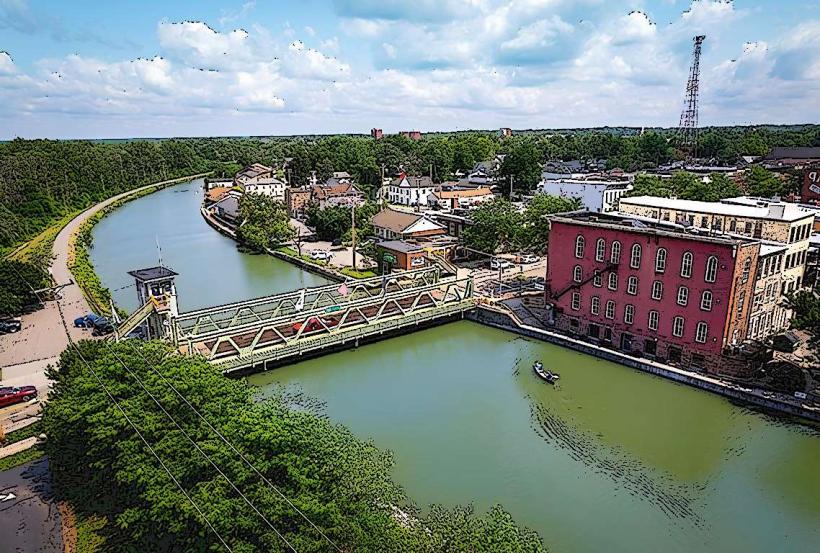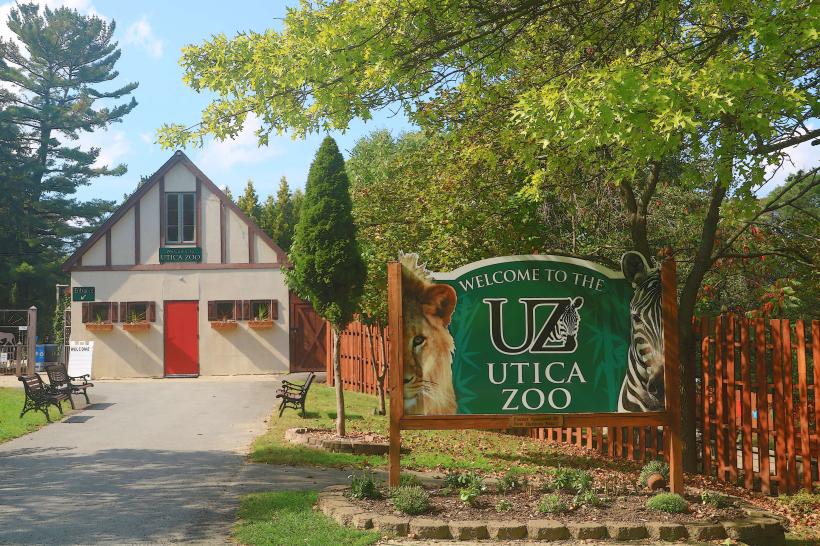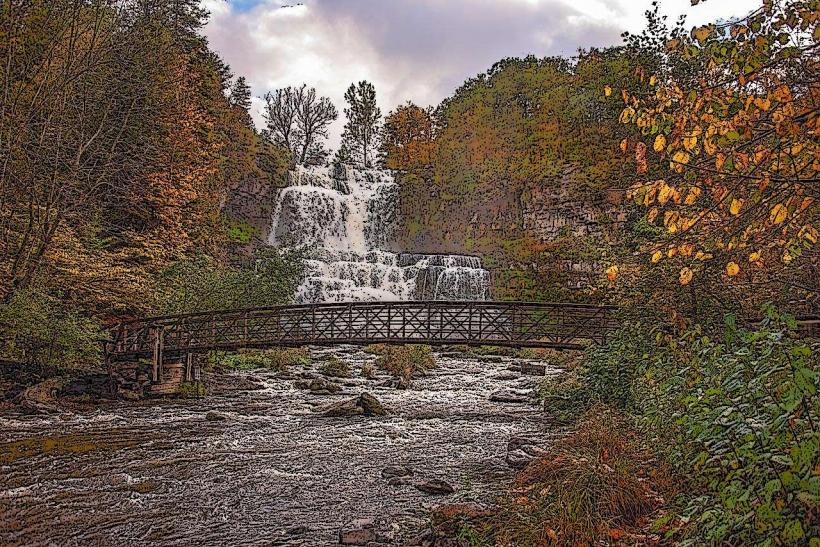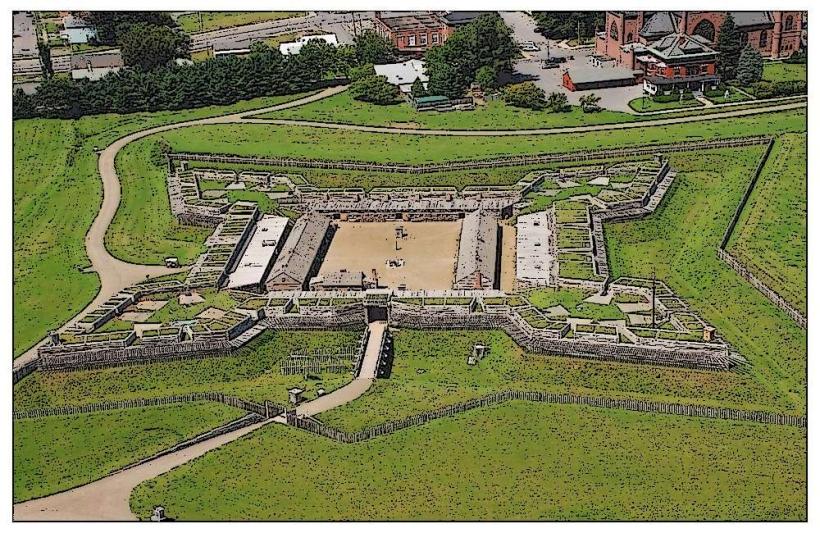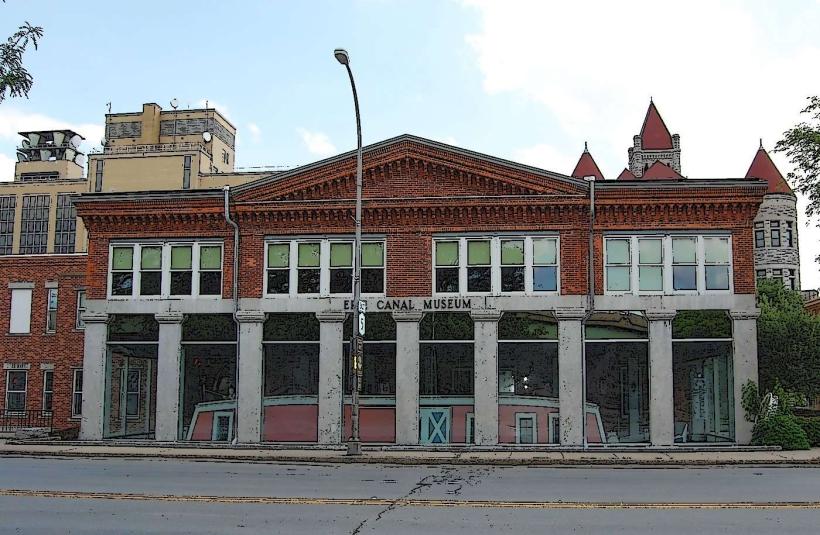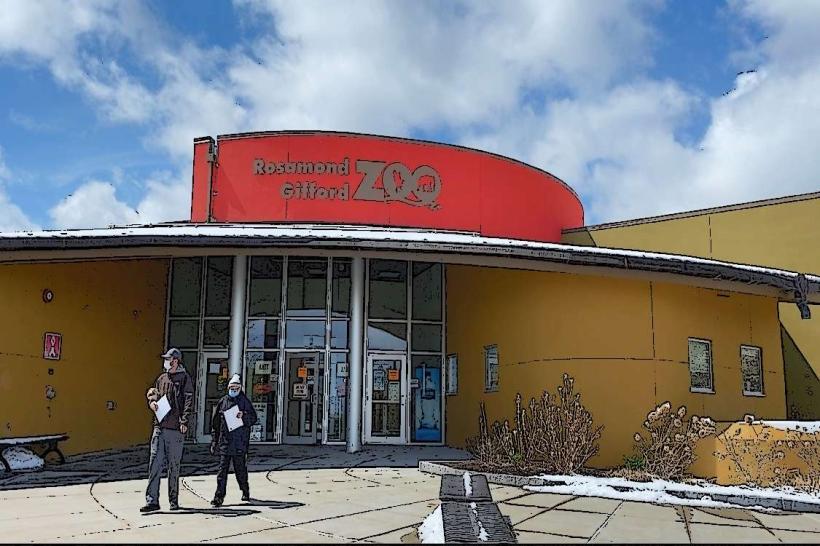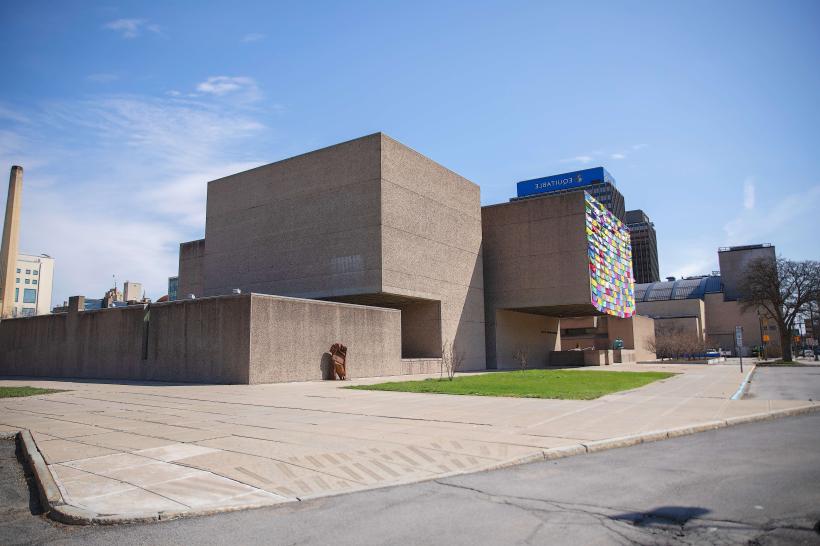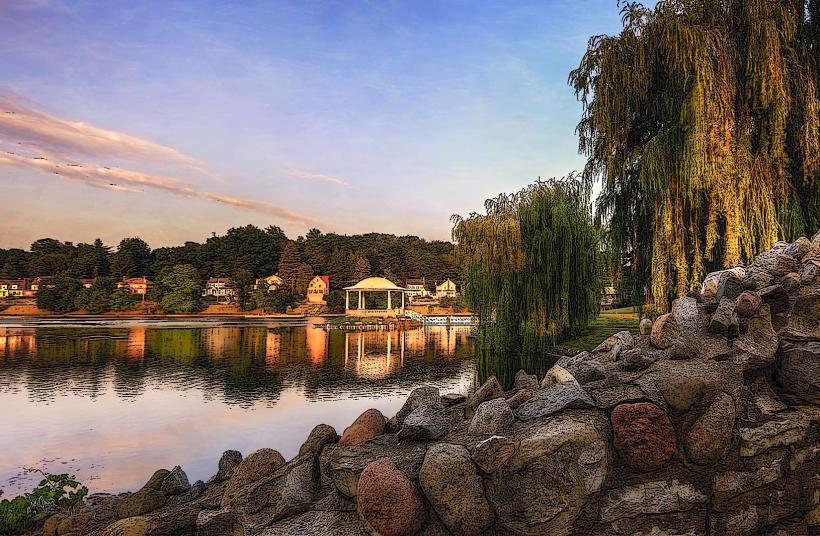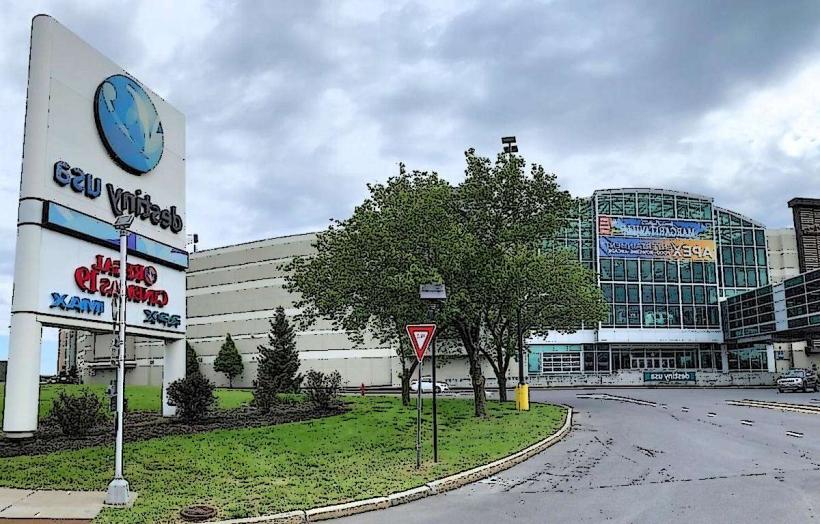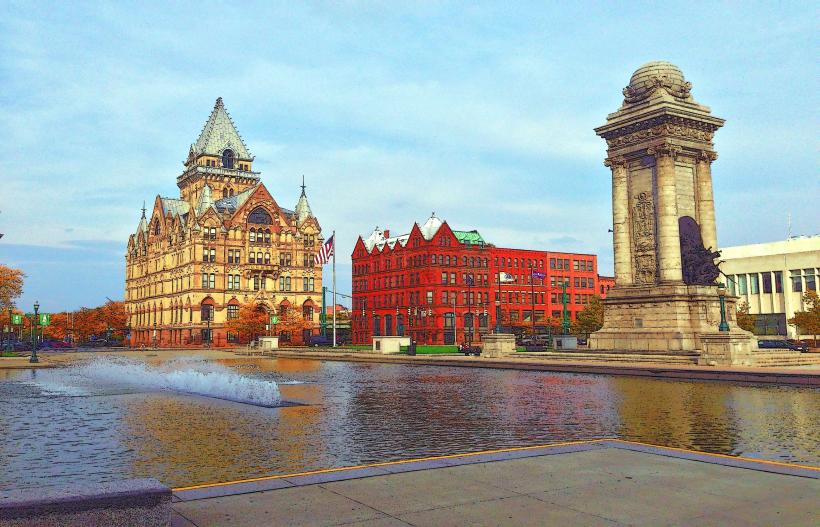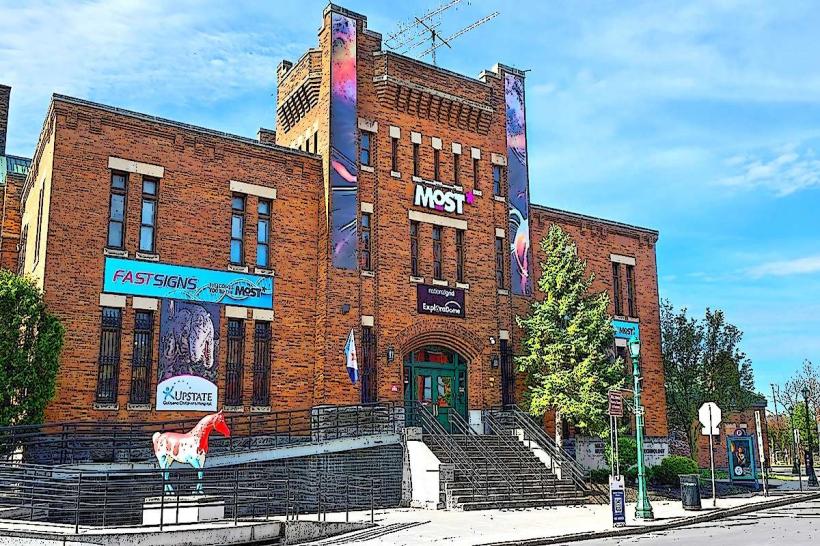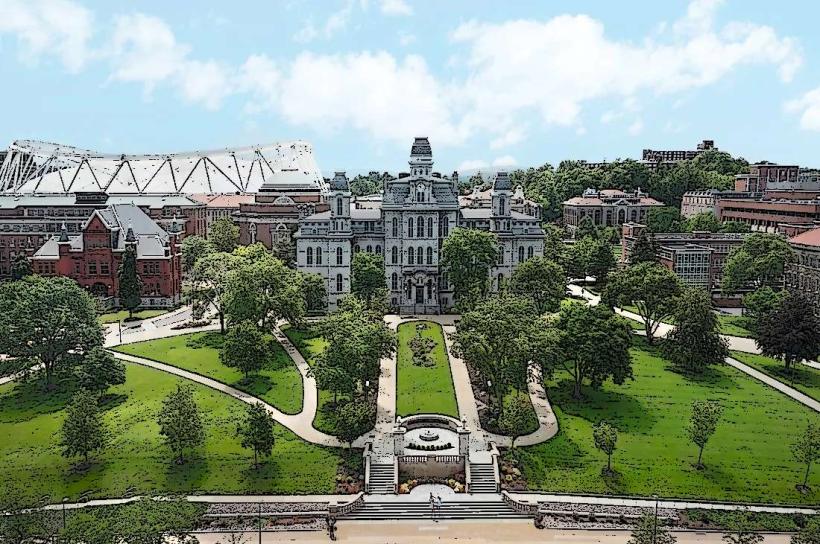Information
Landmark: State Tower BuildingCity: Syracuse
Country: USA New York
Continent: North America
State Tower Building, Syracuse, USA New York, North America
The State Tower Building in Syracuse, New York, is a landmark skyscraper renowned for its architectural significance, historical importance, and modern revitalization. Located at 109 South Warren Street in downtown Syracuse, it has been the tallest building in Central New York since its completion in 1928.
Architectural Design and Style
The building is a prime example of Art Deco architecture, a style popular in the 1920s and 1930s characterized by decorative geometric patterns and vertical emphasis. Designed by the architectural firm Thompson & Churchill, the State Tower Building features a distinctive tiered or "wedding cake" form where the upper floors gradually step back, creating a layered effect. The façade combines steel and concrete with terra-cotta and brickwork that lightens in color as it ascends, enhancing the sense of height and elegance.
Inside, the building originally boasted a lavish Art Deco lobby with intricate details, marble surfaces, and ornamental fixtures, reflecting the luxury and optimism of the era.
Historical Context
Constructed during a period of economic growth and urban development, the State Tower Building symbolized Syracuse’s aspirations and prosperity in the early 20th century. For decades, it housed offices for a variety of businesses and professionals, contributing to the city’s commercial and financial activities.
The building’s location in the Hanover Square Historic District places it among other notable historic structures that together represent Syracuse’s rich architectural heritage.
Redevelopment and Modern Use
In 2016, the State Tower Building underwent a comprehensive redevelopment led by Pioneer Companies, transforming the once exclusively office building into a mixed-use facility that combines residential, commercial, and retail spaces.
Residential Component: The top 14 floors were converted into 61 luxury apartments featuring modern amenities such as quartz countertops, hardwood floors, stainless steel appliances, and in-unit washers and dryers. Residents also enjoy access to a rooftop terrace, fitness center, and community spaces. The residential units vary from studios to two-bedroom apartments, catering to diverse lifestyles.
Office Space: The first seven floors continue to serve as Class A office space, with modernized infrastructure, conference rooms, and advanced technology. This maintains the building’s original commercial function while updating it for today’s business needs.
Retail: The ground floor accommodates retail businesses, including an on-site deli and other local services, integrating the building into the street-level urban fabric and contributing to downtown Syracuse’s vibrancy.
Amenities and Features
Rooftop terrace with city views.
Fitness center and community room for residents.
Secured elevator access and pet-friendly policies.
Approximately 105,000 square feet of office space with flexible layouts.
Conference rooms equipped with modern audiovisual technology.
On-site parking garage and bike racks.
Cultural and Community Importance
The State Tower Building plays a role beyond its physical presence. It hosts annual community events such as "The Climb," where participants ascend its 338 steps to raise funds for pediatric cancer research, demonstrating its ongoing connection to Syracuse’s social causes.
Its preservation and adaptive reuse serve as a model of how historic urban architecture can be revitalized to meet contemporary needs while maintaining its heritage and character.
Summary
The State Tower Building is a distinguished architectural and historical icon in Syracuse. Its Art Deco design, prominent skyline presence, and successful transformation into a mixed-use property make it a vital part of the city’s identity. Combining luxury residential living, modern office space, and retail services, the building continues to contribute to downtown Syracuse’s economic vitality and cultural fabric.

